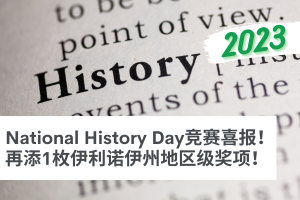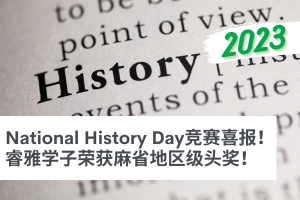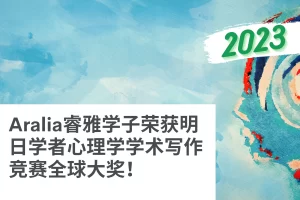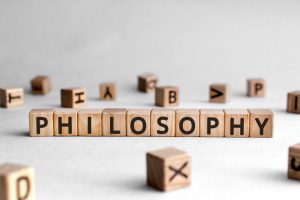IPO 国际哲学奥林匹克竞赛
IPO 国际哲学奥林匹克竞赛邀请来自世界各地的高中生探索哲学主题。参赛者根据命题撰写文章,并由评委小组进行评审。该比赛旨在促进批判性思维,鼓励学生深入思考哲学理念。
想要挑战这项比赛?
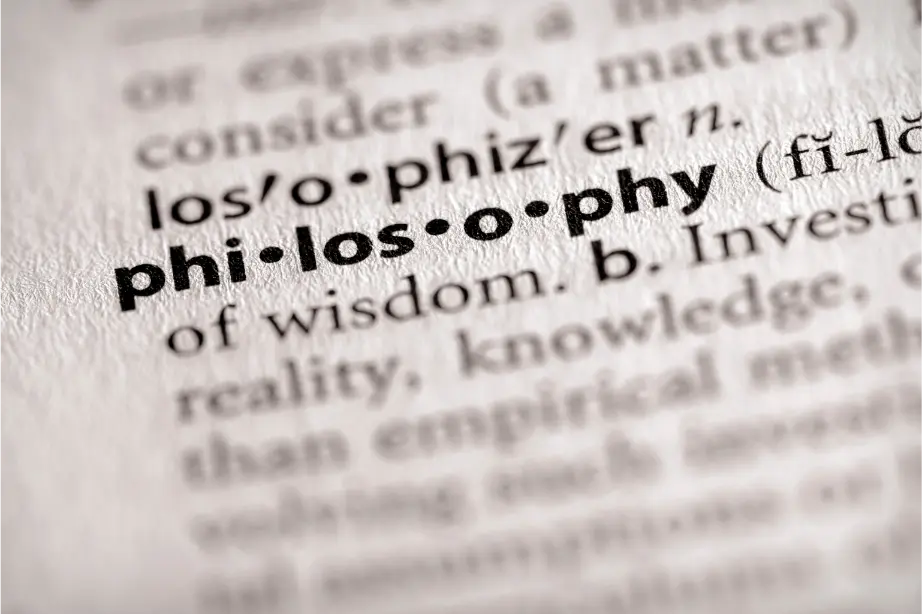
竞赛信息
全球高中生
参赛资格
免费
参赛费用
2024年2月18日
美国地区论文提交截止日期
2024年5月16日至19日,赫尔辛基,芬兰
比赛时间
竞赛细节
1. 比赛目标
该比赛旨在促进中学层面的哲学教育,提高高中生对哲学的兴趣。此外,它还培养批判性、好奇心和创造性思维,促进对科学、艺术和社会生活的哲学反思,培养对现代世界挑战的伦理思考。通过促进来自不同国家青年的智力交流和个人联系,比赛也旨在倡导和平文化。
2. 参赛资格
参赛学生必须目前在高中就读,或在12月份结束学年的国家中,前一年有注册在读。如果符合这些条件,即使是大学生也可以参加。参赛者必须年龄在20岁及以下。
3. 如何符合资格
要获得国际哲学奥林匹克(IPO)资格,学生必须参加由相关国家哲学协会或其他与高中哲学相关的哲学组织主办的国家比赛。在没有国家协会或未组织比赛的情况下,IPO执行委员会可以批准替代选拔方法。
步骤1:检查国家IPO代表团 确认您的国家是否有国家代表团。如果有,请直接联系代表团负责人。如果无法联系,请通过邮箱 board.ipo@gmail.com 联系IPO执行委员会以获取帮助。
步骤2:创建国家代表团
如果您的国家没有代表团,IPO执行委员会可以协助建立。重要考虑因素包括拥有合格的哲学教师,与当地或国家哲学协会的联系,并确保所有高中生均可开放参与。
4. 比赛日
学生有4小时的时间根据四个主题中的一个撰写哲学论文。主题以英语、西班牙语、法语和德语提供,学生必须使用非母语的语言进行写作。
5. 评估标准
- 与主题的相关性
- 对主题的哲学理解
- 逻辑连贯性
- 论证的力量
- 独创性
主题
英语(带中文翻译)
- At times, the truth shines so brilliantly that we perceive it as clear as day. Matter and habit then draw a veil over our perception, and we return to a darkness almost as dense as before. We are like those who, though beholding frequent flashes of lightning, still find themselves in the thickest darkness of the night.
Moses Maimonides, The Guide for the Perplexed (ca. 1190 AD), transl. M. Friedländer [slightly revised].
New York: Dover, 1956, p. 3.有时,真理闪耀得如此明亮,以至于我们可以清晰地感知它。然后,物质和习惯为我们的感知蒙上了面纱,我们又回到了几乎与之前一样浓厚的黑暗中。我们就像那些尽管频繁看到闪电,却仍发现自己身处夜晚最浓厚黑暗中的人。
——摩西·迈蒙尼德,《迷途者的指引》(约1190年),M. Friedländer译(稍作修订)。
纽约:多佛,1956年,第3页。 - Once war has been declared for just causes, the prince should press his campaign not for the destruction of his opponents, but for the pursuit of the right for which he fights and the defence of his homeland, so that by fighting he may eventually establish peace and security.
Francisco de Vitoria, “On the Law of War” (1539), in Id. Political Writings, ed. A. Pagden; J. Lawrance. Cambridge: Cambridge UP, 1991, p. 327.一旦因正当理由宣战,王子应当推动他的战役,不是为了摧毁对手,而是为了追求他所争取的权利和保卫祖国,以便通过战斗最终建立和平与安全。 ——弗朗西斯科·德·维多利亚,《论战争法》(1539年),收录于《政治著作》,A. Pagden和J. Lawrance主编。剑桥:剑桥大学出版社,1991年,第327页。
- What is the status of citizenship today, in a world of increasingly deterritorialized politics? How is citizenship being reconfigured under contemporary conditions? How has the fraying of the four functions of the state – territoriality, administrative control, democratic legitimacy, and cultural identity – affected the theory and practice of citizenship
Seyla Benhabib, The Rights of Others. Aliens, Residents, and Citizens, Cambridge: Cambridge UP, 2004, p. 144.在一个政治日益去领土化的世界中,今天公民身份的地位如何?公民身份在当代条件下是如何重新配置的?国家的四项功能——领土性、行政控制、民主合法性和文化认同的解体如何影响公民身份的理论和实践?
——塞拉·本哈比,《他人的权利。外来者、居民与公民》,剑桥:剑桥大学出版社,2004年,第144页。 - Artificial intelligence is not an objective, universal, or neutral computational technique that makes determinations without human direction. Its systems are embedded in social, political, cultural, and economic worlds, shaped by humans, institutions, and imperatives that determine what they do and how they do it. They are designed to discriminate, to amplify hierarchies, and to encode narrow classifications. When applied in social contexts such as policing, the court system, health care, and education, they can reproduce, optimize, and amplify existing structural inequalities. This is no accident: AI systems are built to see and intervene in the world in ways that primarily benefit the states, institutions, and corporations that they serve.
Kate Crawford, The Atlas of AI: Power, Politics, and the Planetary Costs of Artificial Intelligence (2021).
Yale: Yale UP, 2021, p. 211.人工智能不是一种客观、普遍或中立的计算技术,它在没有人类指导的情况下做出决定。它的系统嵌入在社会、政治、文化和经济的世界中,受到人类、机构和决定性因素的影响,决定了它们的功能和工作方式。它们被设计用来歧视、放大等级,并编码狭隘的分类。当在社会环境中应用,如警务、司法系统、医疗和教育时,它们可能会重现、优化并放大现有的结构性不平等。这并非偶然:人工智能系统是为了以主要有利于其服务的国家、机构和公司为目的,去观察和干预世界而构建的。
——凯特·克劳福德,《人工智能的地图:权力、政治与人工智能的全球成本》(2021年)。
耶鲁:耶鲁大学出版社,2021年,第211页。
西班牙语翻译
- A veces, la verdad brilla hasta imaginárnosla tan clara como el día, pero otras la oscurecen la materia y la rutina hasta sumirnos en una noche lóbrega, como anteriormente estábamos, semejantes a quien, sumergido en tétrica noche, ve fulgurar relámpago tras relámpago.
Maimónides (Mosé ben Maimon), Guía de perplejos (ca. 1190), ed. D. G. Maeso. Madrid: Trotta, 2015, p. 56. - Una vez declarada la guerra en virtud de justas causas, debe procederse en ella, no para ruina y perdición de la nación a quien se hace, sino para la consecución de su derecho y para defensa de la patria y para que por dicha guerra se llegue a conseguir la paz y la seguridad.
Francisco de Vitoria, “Relección segunda de los indios o del derecho de guerra” (1539), in Id. Relecciones sobre los indios y el derecho de Guerra, trad. de A. D. Pirotto [ligeramente modificada]. Madrid: Espasa Calpe, 1946, p. 146. - ¿Cuál es la condición de la ciudadanía hoy, en un mundo de una política crecientemente desterritorializada? ¿Cómo se está reconfigurando la ciudadanía según las condiciones contemporáneas? ¿Cómo ha afectado a la teoría y la práctica de la ciudadanía el deshilachado de las cuatro funciones del Estado: territorialidad, control administrativo, legitimidad democrática e identidad cultural?
Seyla Benhabib, Los derechos de los otros.
Extranjeros, residentes y ciudadanos (2004), trad. por G. Zadunaisky.
Barcelona: Gedisa, 2005, p. 107. - La Inteligencia Artificial no es una técnica computacional neutral que tome determinaciones sin una dirección humana. Sus sistemas están integrados en mundos sociales, políticos, culturales y económicos, delineados por humanos, instituciones e imperativos que determinan lo que hacen y cómo lo hacen. Están diseñados para discriminar, ampliar jerarquías y codificar clasificaciones estrechas. Cuando son aplicadas en contextos sociales como la vigilancia policial, el sistema judicial, la salud y la educación, pueden reproducir, optimizar y amplificar las desigualdades estructurales existentes. Esto no es casual. Los sistemas de IA están construidos para ver e intervenir en el mundo de maneras que benefician principalmente a los Estados, las instituciones y las corporaciones a los que sirven.
Kate Crawford, Atlas de Inteligencia Artificial.
Poder, política y costos planetarios (2021), trad. esp. por F. Díaz Klassen.
Buenos Aires: Fondo de Cultura Económica Argentina, 2023, 319.
法语翻译
- La vérité tantôt nous apparaît de manière à nous sembler claire comme le jour, tantôt elle est cachée par les choses matérielles et usuelles, de sorte que nous retombons dans une nuit profonde à peu près comme nous étions auparavant, et nous sommes alors comme l’homme qui, se trouvant dans une nuit profondément obscure, y voit parfois briller un éclair.
Moïse Maïmonide, Le Guide des égarés (env. 1190), traduit de l’arabe par S. Munk, revue par Ch. Mopsik.
Lagrasse : Verdier, 1979, p. 12-13. - Lorsque l’on fait la guerre pour de justes raisons, il faut la faire non pour la perte de la nation contre laquelle on doit combattre, mais pour la poursuite de son droit, la défense de sa patrie et pour obtenir qu’un jour la paix et la sécurité soient le résultat de cette guerre.
Francisco de Vitoria, “Leçon sur le Droit de guerre” (1539), in Id. Leçons sur les Indiens et sur le droit de guerre, éd. M. Barbier [légèrement modifiée]. Genève : Droz, 1966, p. 83. - Quel statut revient à la citoyenneté aujourd’hui, dans un monde où la politique ne cesse pas de se déterritorialiser ? Comment la citoyenneté de reconfigure-t-elle dans les conditions contemporaines ? Comment l’effilochement des quatre fonctions de l’État – la territorialité, le contrôle administratif, la légitimité démocratique et l’identité culturelle – a-t-il affecté la théorie et la pratique de la citoyenneté ?
Seyla Benhabib, Les Droits des autres. Étrangers, résidents et citayens (2004).
Traduction originelle. - L’intelligence artificielle n’est pas une technique computationnelle objective, universelle ou neutre, qui prend des décisions sans orientation humaine. Ses systèmes sont inscrits dans le monde social, politique, culturel et économique, façonnés par des humains, des institutions et des impératifs qui déterminent ce qu’ils font et comment ils le font. Ils sont conçus pour trier, pour amplifier les hiérarchies, et pour encoder des classifications étroites. Quand ils sont appliqués à des contextes sociaux comme la police, la justice, les soins de santé et l’éducation, ils peuvent reproduire, amplifier et aggraver les inégalités structurelles existantes. Ce n’est pas un hasard : les systèmes d’IA sont construits pour voir et intervenir dans le monde d’une manière qui avantage surtout les États, les institutions et les entreprises qu’ils servent.
Kate Crawford, Contre-atlas de l’intelligence artificielle : les coûts politiques, sociaux et environnementaux de l’IA (2021), traduit de l’anglais par L. Bury. Paris : Zulma, 2023, p. 245.
德语翻译
- Vielmehr leuchtet uns nur manchmal die Wahrheit hervor, so daß wir meinen, es ist Tag; dann aber entziehen Materie und Lebensweise sie wieder unseren Blicken, so daß wir wieder in finsterer Nacht sind, fast wie zuvor. Wir gleichen dann einem, dem dann und wann ein Blitz aufleuchtet, während er in dichter, nächtlicher Finsternis weilt.
Moses Maimonides, Führer der Unschlüssigen (ca. 1190), übersetzt von A. Weiss, mit neuer Einleitung von J. Maier.
Hamburg: Meiner, 1972, p. 7. - Sobald der Krieg aus gerechten Gründen erklärt wurde, sollte der Fürst seinen Feldzug nicht auf die Vernichtung seiner Gegner ausrichten, sondern auf die Verfolgung des Rechts, für das er kämpft, und auf die Verteidigung seines Heimatlandes, sodass er durch den Kampf bei gutem Ausgang Frieden und Sicherheit herstellen kann.
Francisco de Vitoria, „Über das Kriegsrecht“ (1539), in Id. Vorlesungen II. Völkerrecht, Politik, Kirche = Relectiones.
Stuttgart/Berlin/Köln: Kohlhammer, 1997, p. 542-605. Originalübersetzung. - Welchen Status hat die Staatsbürgerschaft heute, in einer Welt, in der die Politik sich zunehmend von territorialen Bindungen löst? Wie wird die Staatsbürgerschaft unter den heutigen Bedingungen neugestaltet? Wie hat sich die Ausdifferenzierung der vier Funktionen des Staates – Gebietshoheit, Verwaltungskontrolle, demokratische Legitimität und kulturelle Identität – auf die Theorie und Praxis der Staatsbürgerschaft ausgewirkt?
Seyla Benhabib, Die Rechte der Anderen.
Ausländer, Migranten, Bürger (2004),
Frankfurt a. M.: Suhrkamp, 2017. Originalübersetzung. - Künstliche Intelligenz ist keine objektive, universelle oder neutrale Computertechnik, die ohne menschliche Führung Bestimmungen vornimmt. Ihre Systeme sind in soziale, politische, kulturelle und wirtschaftliche Welten eingebettet, und von Menschen, Institutionen und Geboten geprägt, die bestimmen, was sie tun und wie sie es tun. Sie sind darauf ausgelegt, zu diskriminieren, Hierarchien auszuweiten und enge Klassifizierungen festzuschreiben. Wenn sie in sozialen Kontexten wie der Polizei, dem Gerichtswesen, der Gesundheitsversorgung und dem Bildungswesen angewandt werden, können sie bestehende strukturelle Ungleichheiten reproduzieren, optimieren und vergrößern. Das ist kein Zufall: KI-Systeme sind gemacht, um in der Welt Informationen zu sammeln und zu intervenieren auf eine Art und Weise, die vor allem den Staaten, den Institutionen und den Unternehmen zugutekommt, denen sie dienen.
Kate Crawford, Atlas der KI.
Die materielle Wahrheit hinter den neuen Datenimperien (2021).
München: C.H. Beck, ersch. Aug 2024. Originalübersetzung.
提交细节(针对美国参赛学生)
阶段1:提交一篇英语论文,约800词,回应提供的两个主题之一。提交截止日期为2024年2月18日。
- Topic 1: In an interview with Richard Marshall, Ernest Sosa, the Rutgers University philosopher, said the following. “Knowledge in my view is a form of action. It involves endeavors to get it right, and more broadly it concerns aimings, which can be functional rather than intentional. Through our perceptual systems, we represent our surroundings, aiming to do so accurately, where the aiming is functional or teleological, rather than intentional. And the same goes for our functional beliefs. Through our judgments, however, we do intentionally, even consciously, attempt to get it right.”
主题1:在与理查德·马歇尔的采访中,罗格斯大学哲学家欧内斯特·索萨说:“在我看来,知识是一种行动。它涉及到努力使事情正确,广义上来说,它关乎目标,这些目标可以是功能性的,而不是有意图的。通过我们的感知系统,我们表示周围的环境,力求准确,其中的目标是功能性或目的论的,而不是有意图的。我们的功能性信念也是如此。然而,通过我们的判断,我们确实是有意的,甚至是自觉地,试图使事情正确。” - Topic 2: In a Wikipedia article on the philosopher and ethicist, Peter Singer, the following is written. “In Practical Ethics, Singer argues in favour of abortion rights on the grounds that fetuses are neither rational nor self-aware, and can therefore hold no preferences. As a result, he argues that the preferences of a mother to have an abortion automatically takes precedence. In sum, Singer argues that a fetus lacks personhood.”
主题2:在关于哲学家和伦理学家的维基百科文章中,写道:“在《实用伦理学》中,辛格主张支持堕胎权,理由是胎儿既不理性也没有自我意识,因此无法持有任何偏好。因此,他认为母亲选择堕胎的偏好自动优先。总之,辛格认为胎儿缺乏人格。”

